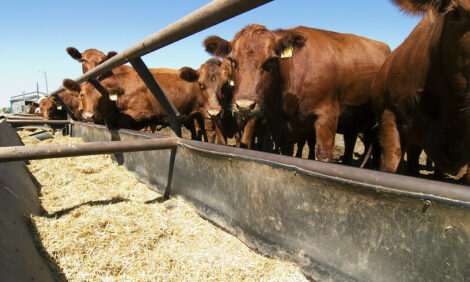



Australian Government Beef Intervention Would Be "Strongly Opposed"
AUSTRALIA - Cattle Council is calling for calm and a focus on the long-term vision for the Australian beef industry, following calls for Government intervention in Australia’s beef supply chains.Any suggestion that there should be market intervention at any point in Australia’s beef supply chain, either domestically or internationally, will be strongly opposed by Australian beef producers, the organisation said.
Australasian Meat Industry Employees Union called for a cap on live exports from Australia after an extended closure of a local abattoir in Townsville, Queensland.
However, industry leaders maintain the closure is not down to live export volumes.
“Australian beef producers are strong supporters of free markets,” said Howard Smith, Cattle Council President.
“Government intervention at any point in the supply chain will inevitably create market failure, which will ultimately harm cattle producers,” said Mr Smith.
Cattle Council said it recognises that the processing sector is currently managing the decline in cattle numbers, but it is essential to the profitability of the whole Australian beef industry that a long-term vision is maintained.
“Beef producers must have access to multiple markets that are globally competitive to ensure the long-term sustainability of the industry. It is vital that both the processor and live export supply chains are healthy and open to the free market,” said Mr Smith.
“The whole beef industry must work together to ensure that all supply chains are as efficient and competitive. Only through greater collaboration, throughout the whole supply chain, can the beef industry reduce the peaks and troughs that we all experience.”
The Australian beef industry has always been subject to ebbs and flows in supply and demand for both cattle and beef. This results in differing points in the supply chain being more profitable than others at various times.
Market conditions can never be attributed to any one factor, the Council said. Seasonal conditions, global supply, exchange rates and market access all contribute to the price paid for cattle and beef at any one time.
“We are entering an unprecedented period of global demand for protein. We must not put constraints on our supply chains, we must invest in them and remove impediments so they can prosper and create jobs,” Mr Smith concluded.
TheCattleSite News Desk


